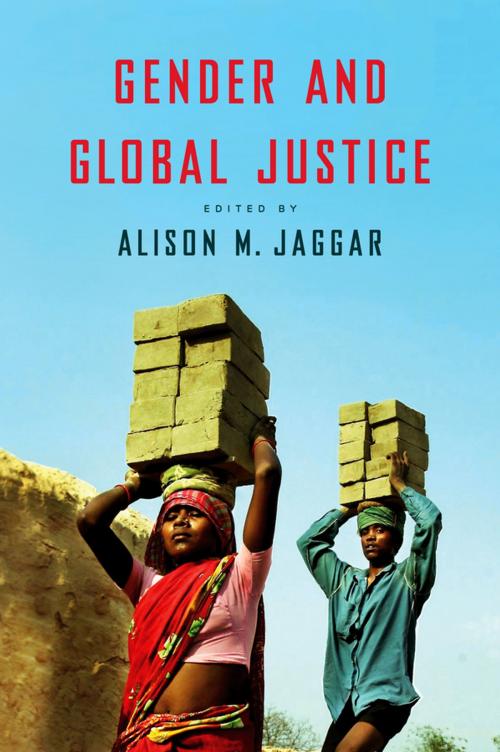| Author: | ISBN: | 9780745679761 | |
| Publisher: | Wiley | Publication: | January 14, 2014 |
| Imprint: | Polity | Language: | English |
| Author: | |
| ISBN: | 9780745679761 |
| Publisher: | Wiley |
| Publication: | January 14, 2014 |
| Imprint: | Polity |
| Language: | English |
Issues of global justice have received increasing attention in academic philosophy in recent years but the gendered dimensions of these issues are often overlooked or treated as peripheral. This groundbreaking collection by Alison Jaggar brings gender to the centre of philosophical debates about global justice.
The explorations presented here range far beyond the limited range of issues often thought to constitute feminists’ concerns about global justice, such as female seclusion, genital cutting, and sex trafficking. Instead, established and emerging scholars expose the gendered and racialized aspects of transnational divisions of paid and unpaid labor, class formation, taxation, migration, mental health, the so-called resource curse, and conceptualizations of violence, honor, and consent. Jaggar's introduction explains how these and other feminist investigations of the transnational order raise deep challenges to assumptions about justice that for centuries have underpinned Western political philosophy.
Taken together the pieces in this volume present a sustained philosophical engagement with gender and global justice. Gender and Global Justice provides an accessible and original perspective on this important field and looks set to reframe philosophical reflection on global justice.
Issues of global justice have received increasing attention in academic philosophy in recent years but the gendered dimensions of these issues are often overlooked or treated as peripheral. This groundbreaking collection by Alison Jaggar brings gender to the centre of philosophical debates about global justice.
The explorations presented here range far beyond the limited range of issues often thought to constitute feminists’ concerns about global justice, such as female seclusion, genital cutting, and sex trafficking. Instead, established and emerging scholars expose the gendered and racialized aspects of transnational divisions of paid and unpaid labor, class formation, taxation, migration, mental health, the so-called resource curse, and conceptualizations of violence, honor, and consent. Jaggar's introduction explains how these and other feminist investigations of the transnational order raise deep challenges to assumptions about justice that for centuries have underpinned Western political philosophy.
Taken together the pieces in this volume present a sustained philosophical engagement with gender and global justice. Gender and Global Justice provides an accessible and original perspective on this important field and looks set to reframe philosophical reflection on global justice.















